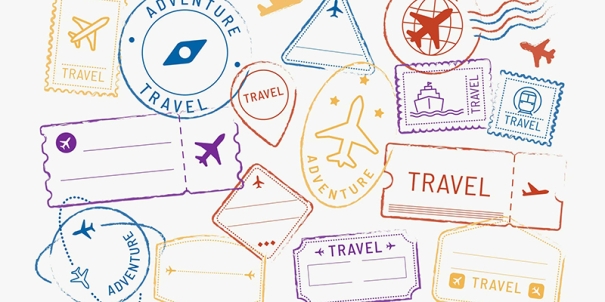Travel
Skydiving 101: What First-Timers Need to Know
1756721130000
Thinking about visiting Mexico, Peru, or Argentina? These countries welcome millions of travellers every year, but staying safe takes more than booking flights and hotels. Thoughtful planning helps turn a trip into an adventure instead of a headache.
Thinking about visiting Mexico, Peru, or Argentina? These countries welcome millions of travellers every year, but staying safe takes more than booking flights and hotels. Thoughtful planning helps turn a trip into an adventure instead of a headache.
From crowded markets in Guatemala to the quiet landscapes of Chile, knowing a few safety basics and moving with confidence can make all the difference. Travel is always more rewarding when you’re prepared, because sometimes the smallest precautions lead to the biggest memories.

Savvy travellers start preparing weeks before departure. Research becomes essential for safe travel in South America and Latin regions generally. Current travel advisories through the U.S. State Department show real-time conditions since political situations shift rapidly in certain areas.
Document management prevents major headaches later. Digital copies stored in cloud accounts, along with physical copies left with trusted contacts at home, solve most emergency document problems—travel insurance that covers medical emergencies and evacuation matters, particularly in countries with unfamiliar healthcare systems.
Avoiding travel scams begins with understanding local money systems and banking practices. Spanish-speaking countries often have unique financial quirks that catch tourists unprepared. Official banks and established exchange services consistently outperform street dealers. ATMs inside banks or hotels provide safer access than standalone machines on busy streets.
Money distribution across multiple hiding spots prevents total loss during theft. Seasoned travellers split funds between money belts for large amounts and accessible pockets for daily expenses. Many smaller towns and rural areas still operate cash-only, making plastic payment impossible.
Mastering Spanish travel phrases creates safety advantages beyond basic politeness. These phrases become emergency tools for navigation, medical situations, and avoiding dangerous misunderstandings. Focus on immediate needs rather than casual conversation. "¿Dónde está el hospital?" (Where's the hospital?) and "Necesito ayuda" (Need help) matter more than discussing weather patterns.
Number practice proves crucial for handling prices, addresses, and emergencies. "No entiendo" (Don't understand) prevents accidental agreements with questionable proposals. Scammers frequently target confused tourists who cannot communicate basic requirements. Travelling safely in Spanish-speaking countries becomes significantly easier when locals recognise genuine communication efforts.
Safe movement varies dramatically between urban centres and countryside locations. Safety tips for Latin America consistently emphasise legitimate transportation choices, though definitions change by region. Cities offer official taxis and ride-sharing applications like Uber, where permitted. Avoid unmarked vehicles and drivers making unsolicited approaches.
Public bus systems throughout Spanish-speaking nations often provide excellent service, but conducting thorough route research and safety reputation checks beforehand is crucial. Long-distance buses often provide better security than navigating unfamiliar territories in a rental car. Domestic flights require established airline selection and official website booking to prevent fraudulent transactions.
Reliable communication proves vital for safe travel in South America and similar regions. Multiple contact methods, navigation tools, and access to current information prevent minor problems from becoming major crises. Local SIM cards or international roaming packages that provide dependable service have become travel necessities.
WhatsApp dominates communication throughout Latin America and functions with minimal data connections.
Current news and weather monitoring affect travel safety significantly. Seasonal patterns in Spanish-speaking countries impact transportation availability and general security conditions. Earthquake zones, hurricane seasons, and extended rainy periods each demand specific preparation adjustments.

Good health preparation is one of the most essential parts of travelling safely in Spanish-speaking countries. Some destinations may have different disease risks or limited access to healthcare, making planning necessary.
Checking vaccination requirements, understanding local health concerns, and carrying a well-stocked medical kit with personal prescriptions can save a lot of trouble. Even small items like basic medicines or first-aid supplies can stop minor issues from becoming major problems.
Hospital locations and insurance acceptance require advanced research. International coverage verification and medical evacuation insurance considerations are crucial for adventure activities or visits to remote locations.
Travel complications happen regardless of preparation quality, but response methods determine outcome severity. Safe travel in South America and other
Spanish-speaking regions require alertness without paranoia. Emergency contact information needs accessibility through both digital and physical formats. Include local emergency services, embassy contacts, insurance providers, and home emergency contacts.
In theft situations, your safety should always come first; things can be replaced, but your wellbeing cannot. Losing belongings is frustrating, but protecting yourself and being able to continue your trip matters more.
Filing a police report is helpful for insurance, though it rarely solves the issue on the spot. Staying safe while travelling in Spanish-speaking countries comes down to good preparation, paying attention to your surroundings, and trusting your instincts. After all, sometimes a gut feeling can be your strongest shield.
https://travel.state.gov/content/travel/en/traveladvisories/traveladvisories.html
How do you like this article?
Travel
1756721130000
Recipe & Gourment
1756721254000
shopping
1756721062000
Recipe & Gourment
1756721254000
Travel
1756721130000
Travel
1756721130000
Travel
1756721130000
Travel
1756721130000
Recipe & Gourment
1756721254000
Health & medical treatment
1756721189000
Health & medical treatment
1756721189000









